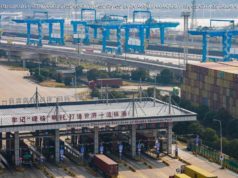Chinese banks and asset managers have stepped up to help complete the largest-ever foreign takeover by a Chinese company.
ChemChina has created a new strain of buyout funding. The Chinese giant is refinancing some debt backing its $44 billion purchase of Syngenta, the Swiss agribusiness company. The result looks like acquisition financing crossbred with government policy.
The deal, China’s largest foreign takeover ever, is nearing completion after more than 15 stressful months during which its success often looked in doubt. While ChemChina quickly amassed huge bridge loans so it could pay Syngenta stockholders, it was less obvious what the longer-term funding structure would look like. The deal-hungry buyer already had a stretched balance sheet, limiting its own ability to contribute equity.
United States regulatory filings now provide a partial answer to that question — and an unconventional answer at that. The buyer is supplying $5 billion of equity, equating to roughly 11 percent of Syngenta’s value. For a conventional Western private equity deal, that would be far too thin a sliver for lenders or regulators — but then, this deal is effectively backed by the People’s Republic of China.
As for the remainder, ChemChina will hold on to about $19.3 billion of existing debt for now, and borrow $2 billion through new notes via Morgan Stanley. The rest will be supplied by the Bank of China, the asset manager China Reform and Industrial Bank, which have bought perpetual bonds worth $10 billion, $7 billion and $1 billion respectively.
Given their indefinite life span, these bonds look rather like equity; it is also not clear how likely they are to pay regular coupons.
The cost of all this perpetual debt is not disclosed, but this may well be cheaper than actual equity for the borrower, and lets ChemChina keep control of Syngenta to boot. It is harder to see the appeal for the buyers. These are big exposures, even for large public sector institutions. Over all, it appears that the state, which is reportedly also contemplating a bigger tie-up between ChemChina and rival Sinochem, has prodded three of its wards into supporting a fourth to nail down a strategically important deal. No wonder, since China wants Syngenta’s crop technology very badly. This is corporate finance with Chinese characteristics.






